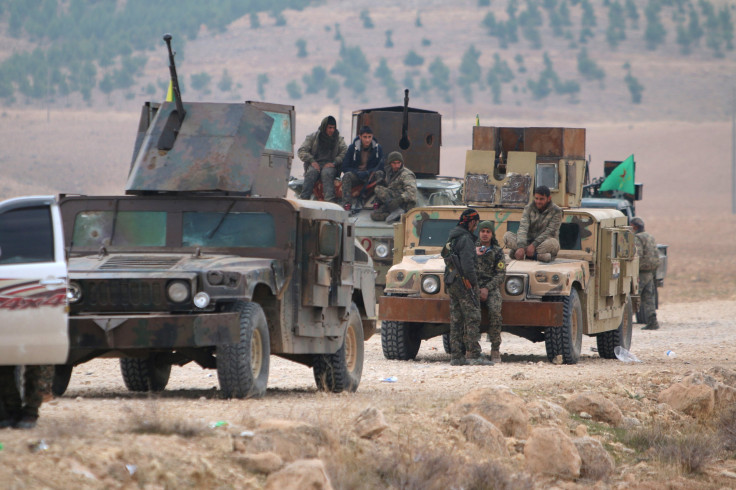Syria War News: US Military Used Depleted Uranium That Can Cause Cancer And Birth Defects

The U.S. military used depleted uranium to destroy Islamic State group targets in Syria after promising that it wouldn't do just that. Depleted uranium can cause widespread public health and environmental problems and is frowned upon by human rights leaders, but there is no international rule banning use of the toxic material linked to cancer and birth defects.
The International Coalition to Ban Uranium Weapons said the contaminated areas "pose a risk to civilian health and must be isolated and addressed as soon as conditions allow." In all, Air Force pilots dropped 5,265 30mm rounds containing depleted uranium in November 2015, destroying nearly 350 ISIS vehicles in the desert near Al-Bukamal, a city bordering Iraq. U.S. Central Command spokesman Maj. Josh Jacques confirmed the attacks in an interview with Foreign Policy and other media outlets.
"I can confirm the use of depleted uranium," Jacques said. "The combination of Armored Piercing Incendiary rounds mixed with High Explosive Incendiary rounds was used to ensure a higher probability of destruction of the truck fleet ISIS was using to transport its illicit oil."
But John Moore, a spokesman for the international coalition against ISIS led by the U.S., promised just months earlier in March 2015 that the military wouldn't use depleted uranium ammunition in its war on the militant group. "U.S. and coalition aircraft have not been and will not be using depleted uranium munitions in Iraq or Syria during Operation Inherent Resolve," Moore said at the time.
The Pentagon did regularly use depleted uranium during the 2003 Iraq war, and was criticized for doing so, UPI reported. The United States also condemned the Iraqi government for using depleted uranium in a 2014 reports, calling the weapons, "a danger to human beings and the environment."
"Since the first Gulf War, DU has been used in the Balkans and Kosovo, and, more recently in the United States' Middle East invasions," the Montreal-based Centre for Research on Globalization said. "It has been suspected as the culprit in lung and kidney illnesses because it is soluble in water and can be ingested as a fine dust through inhalation."
Depleted uranium, the byproduct of enriched uranium that can be used to power nuclear reactors, is much more radioactive than natural uranium. The U.S. Environmental Protection Agency has said it is a “radiation health hazard when inside the body.”
“I think this is an area of international humanitarian law that needs a lot more attention,” said Cymie Payne, a legal scholar and professor of ecology at Rutgers University who has researched DU. “As we’ve been focusing more in recent years on the post-conflict period and thinking about peace building …we need a clean environment so people can use the environment.”
Jacques said the U.S.-led coalition could use depleted-uranium in future attacks, but would also seek to clean up the areas contaminated by the November 2015 operations. Doing so, however, could prove difficult because ISIS still controls the area.
“Given the international opprobrium associated with the use of depleted uranium we had been pretty astonished to hear that it had been used in operations in Syria,” said Doug Weir, the International Coordinator for the Coalition to Ban Uranium Weapons. “The U.S. consistently states that the weapons are for anti-armor use, although their record from Iraq … was further evidence that this doesn’t really bear close scrutiny.”
© Copyright IBTimes 2025. All rights reserved.






















